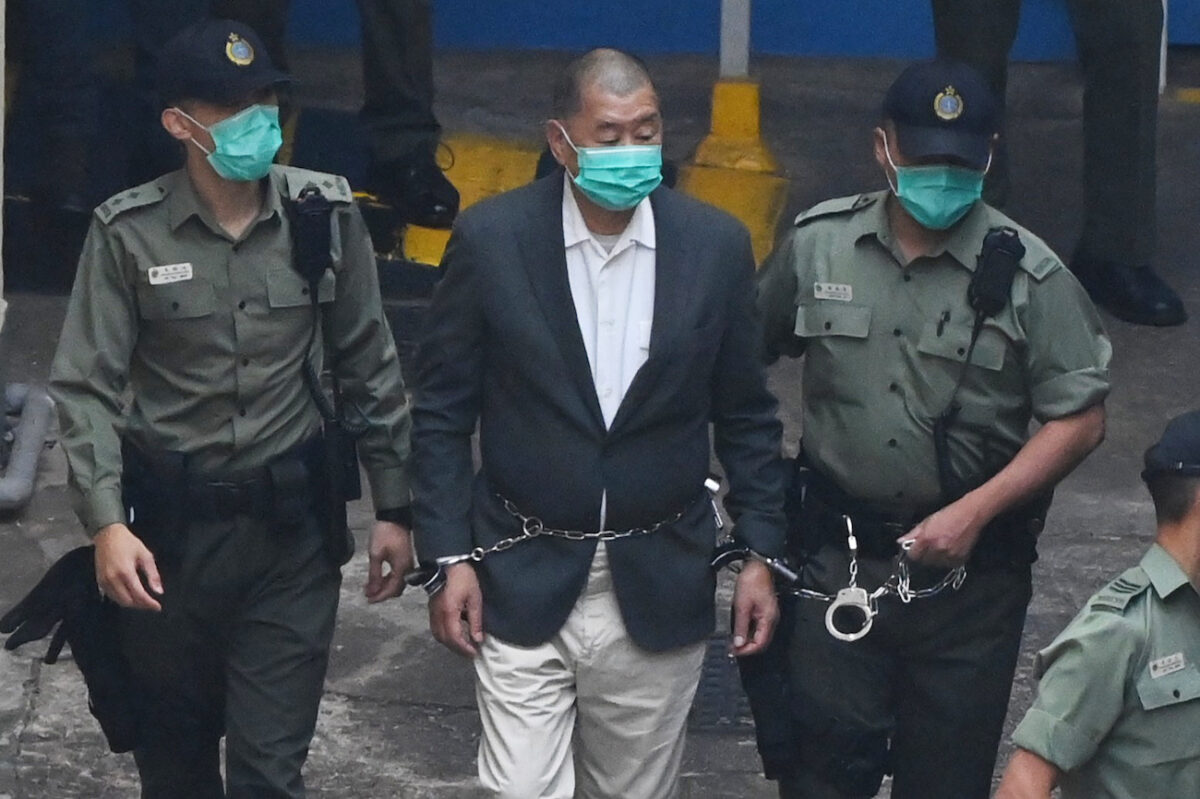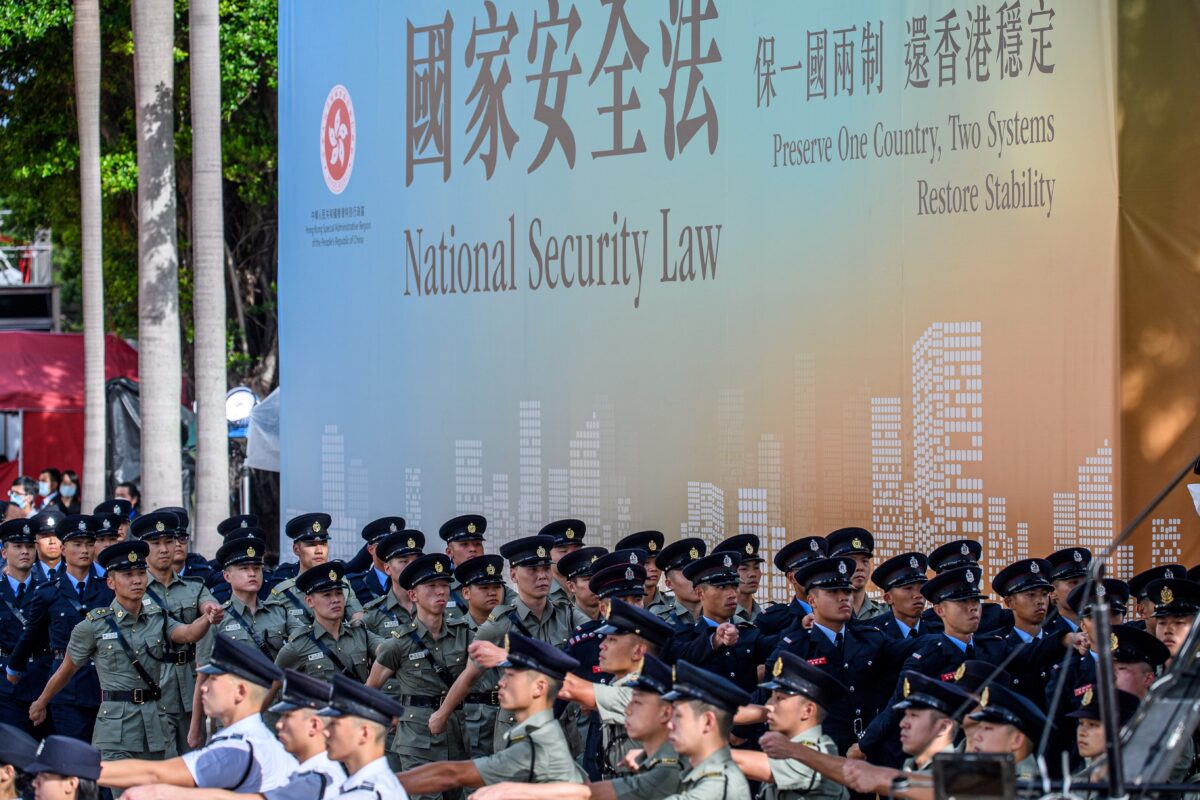China Diverting Attention From Its Wrongdoings in Hong Kong: State Department
The U.S. Department of State said China is attempting to “divert attention from its own bad conduct” in Hong Kong by accusing the United States of interfering in city affairs. The statement comes after China published a list of people responsible for the alleged interference.
“U.S. policy toward Hong Kong has been consistent and will not waver,” a State Department spokesperson told The Epoch Times.
The United States statements and actions on the former British colony are aiming at “preserving the autonomy that Hong Kong was promised in the Joint Declaration” and “promoting accountability for those who erode the human rights and freedoms enjoyed by people in Hong Kong,” the Department said in an email on Sept. 24.
“The United States will always stand up for fundamental freedoms and the rule of law,” the statement read, adding that the two are the fundamental rights the regime promised.
In a Friday post made on China’s Ministry of Foreign Affairs’ website, the regime detailed a list of over 100 cases accusing the United States of “meddling in Hong Kong affairs” and “undermining” the city’s “prosperity and stability.” Beijing has repeatedly used the words to denounce western countries’ criticism over issues including the suppression of dissidents in Hong Kong.
The Department said “articulating policy, engaging with local counterparts, and representing national interests” were the “practice of diplomacy” and “fully consistent with international law.”
“Suggesting otherwise is simply an attempt by the PRC to divert attention from its own bad conduct and only undermines Hong Kong’s longstanding appeal as a hub of openness and free exchange,” according to the statement.
The regime’s ministry criticized Washington’s responses to Hong Kong’s sweeping national security law and other measures the communist rubber-stamp legislature has imposed on the international financial hub since early 2019.
The city’s police have arrested over 10,000 people for their roles in mass protests in mid-2019 against plans allowing extradition to mainland China.
Unlike other mainland cities, Hong Kong had once enjoyed democracy after it reverted from British to Chinese communist rule in 1997. Beijing pledged to allow the city to retain its civil liberties for 50 years in the Sino-British Joint Declaration.
After the regime ushered in a series of measures in recent years, the city has seen a rollback of its autonomy and democracy, especially following the national security legislation. Since it took effect, Hong Kong police have arrested 100 dissidents, leading to more than 60 charges, mostly against democratic politicians, activists, journalists, and students.

Hong Kong pro-democracy media tycoon Jimmy Lai is led into a police van as he heads to court to be charged under the Beijing-imposed controversial new national security law, on Dec. 12, 2020. (Peter Parks/AFP via Getty Images)
The List
Beijing’s accusations range from the signing of the Hong Kong Autonomy Act in 2020 by former President Donald Trump, to President Joe Biden’s show of support for a pro-democracy newspaper Apple Daily.
Trump ordered an end to Hong Kong’s special status under U.S. law to punish the communist regime’s “oppressive actions” against the financial hub.
The regime also criticized Biden for calling the closure of the Apple Daily newspaper “a sad day for media freedom” and a sign of “intensified repression by Beijing.”
The popular tabloid Apple Daily, which was frequently critical of the city’s government and Chinese Communist Party, closed in June after 500 police raided its headquarters and froze its key assets. Authorities say dozens of the paper’s articles may have violated the national security law.
Apple Daily’s founder, tycoon Jimmy Lai, is currently serving a 20-month sentence and waiting for trials on three national security charges. Under the law, Lai could face up to life in prison.
The vaguely-worded legislation punishes speech or acts deemed secessionist, subversive, terrorist, or perceived as colluding with hostile foreign political groups or individuals against China’s ruling one-party state.
Other U.S. officials named on China’s list include House Speaker Nancy Pelosi, then-Secretary of State Mike Pompeo, and his successor Anthony Blinken.
The foreign ministry did not explain why the list was released now or whether it would take punitive action against those named on the list.

Attendees from various forces march next to a banner supporting the new national security law at the end of a flag-raising ceremony to mark the 23rd anniversary of Hong Kong’s handover from Britain in Hong Kong on July 1, 2020. (Anthony Wallace/AFP via Getty Images)
The ministry’s commissioner’s office spokesperson in Hong Kong labeled Washington’s policy and actions toward Hong Kong as “criminal records” in another Friday statement.
On July 16, Washington issued warnings about the deteriorating business conditions in the city after the enactment of the national security law. A week later, Washington imposed sanctions on Chinese officials over their roles in stifling democracy in the city.
In response, the regime issued another sanction list targeting former American politicians and institutions. China has required all individuals and companies in the mainland to follow sanctions the communist regime launched in an anti-foreign sanctions law passed in June.
Those who are involved in implementing foreign sanction measures against the regime could face punishments including denying visas, deportation, and freezing or seizing assets.
Reuters and Cathy He contributed to this report.
" Conservative News Daily does not always share or support the views and opinions expressed here; they are just those of the writer."


